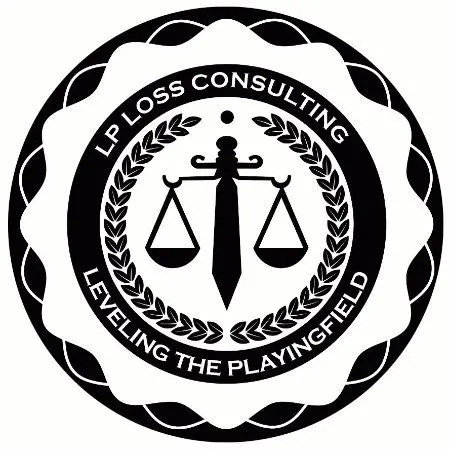Water damage claims are a common occurrence for insurance companies and policyholders alike. Understanding the intricacies of water damage claims is essential for both parties to ensure a fair and efficient claims process. Water damage can result from a variety of sources, including burst pipes, flooding, or leaks from appliances. It is important for insurance adjusters to have a comprehensive understanding of the different types of water damage and the potential causes in order to accurately assess and process claims.
Policyholders also need to understand the terms and conditions of their insurance policies to ensure they are adequately covered in the event of water damage. This includes understanding the limitations and exclusions of their policies, as well as any additional coverage options that may be available. By understanding the complexities of water damage claims, both insurance adjusters and policyholders can work together to navigate the claims process effectively and efficiently.
Water damage claims can be complex and challenging to navigate, but with a thorough understanding of the process, both insurance adjusters and policyholders can work together to ensure a fair and timely resolution.
Key Takeaways
- Understanding Water Damage Claims:
- Water damage claims can be complex and require a thorough understanding of insurance policies and coverage.
- It is important to know the different types of water damage and how they are covered by insurance.
- Assessing Water Damage:
- Proper assessment of water damage is crucial to accurately determine the extent of the damage and the cost of repairs.
- It is important to consider both visible and hidden damage when assessing water damage.
- Documenting Water Damage:
- Detailed documentation of water damage is essential for supporting the claim and ensuring a fair settlement.
- Photos, videos, and written descriptions should be used to document the extent of the damage.
- Communicating with Policyholders:
- Clear and timely communication with policyholders is important to keep them informed about the claims process and their coverage.
- Providing guidance and support to policyholders can help alleviate their stress and confusion during the claims process.
- Determining Coverage for Water Damage:
- Understanding the specific coverage and exclusions in the insurance policy is crucial for determining coverage for water damage claims.
- It is important to carefully review the policy and consult with the insurance company to determine the extent of coverage.
- Negotiating Water Damage Claims:
- Effective negotiation skills are important for reaching a fair settlement for water damage claims.
- It is important to advocate for the policyholder and present evidence to support the claim during negotiations.
- Resolving Water Damage Claims:
- Resolving water damage claims requires a thorough understanding of the policy, effective communication, and negotiation skills.
- It is important to work towards a fair and timely resolution to ensure the policyholder can recover from the water damage.
Assessing Water Damage
Assessing water damage is a critical step in the claims process, as it helps determine the extent of the damage and the necessary repairs. When assessing water damage, insurance adjusters must consider the source of the water, the affected areas, and the potential for secondary damage such as mold growth. It is important to conduct a thorough inspection of the property to accurately assess the extent of the damage and determine the appropriate course of action.
Policyholders should also take steps to assess water damage in their homes or businesses to provide accurate information to their insurance company. This may include documenting the source of the water, taking photographs of the damage, and keeping records of any repairs or restoration efforts. By working together with insurance adjusters to assess water damage, policyholders can help ensure a fair and accurate claims process.
Assessing water damage requires attention to detail and a comprehensive understanding of the potential risks and implications. By carefully assessing water damage, insurance adjusters and policyholders can work together to determine the best course of action for resolving the claim.
Documenting Water Damage
Documenting water damage is essential for both insurance adjusters and policyholders to support their claims. Insurance adjusters should thoroughly document the inspection process, including photographs, notes, and any relevant documentation. This documentation helps support their assessment of the damage and provides evidence for the claim.
Policyholders should also document water damage in their homes or businesses to support their claims. This may include taking photographs of the damage, keeping records of any repairs or restoration efforts, and retaining any relevant receipts or invoices. By documenting water damage, policyholders can provide evidence to support their claim and ensure a fair and accurate assessment by their insurance company.
Documenting water damage is a critical step in the claims process, as it provides evidence to support the assessment of the damage and helps ensure a fair resolution for both insurance adjusters and policyholders.
Communicating with Policyholders
| Communication Channel | Frequency | Response Rate |
|---|---|---|
| Weekly | 80% | |
| Phone | Monthly | 65% |
| Quarterly | 50% |
Effective communication with policyholders is essential for insurance adjusters to ensure a smooth and efficient claims process. Insurance adjusters should provide clear and timely communication with policyholders, keeping them informed about the status of their claim and any additional information or documentation that may be required. By maintaining open lines of communication, insurance adjusters can help alleviate any concerns or uncertainties that policyholders may have about their claim.
Policyholders also play a crucial role in communicating with their insurance company throughout the claims process. They should promptly report any water damage to their insurance company and provide accurate and detailed information about the extent of the damage. By communicating openly and honestly with their insurance company, policyholders can help facilitate a fair and efficient resolution to their claim.
Effective communication between insurance adjusters and policyholders is essential for navigating the complexities of water damage claims. By maintaining open lines of communication and providing accurate information, both parties can work together to ensure a fair and timely resolution.
Determining Coverage for Water Damage
Determining coverage for water damage is a key aspect of the claims process for both insurance adjusters and policyholders. Insurance adjusters must carefully review the terms and conditions of the policy to determine the extent of coverage for water damage. This may include assessing any limitations or exclusions that may apply, as well as any additional coverage options that may be available.
Policyholders should also review their insurance policies to understand the extent of coverage for water damage. This includes understanding any limitations or exclusions that may apply, as well as any additional coverage options that may be available. By understanding their coverage options, policyholders can ensure they are adequately protected in the event of water damage.
Determining coverage for water damage requires a thorough understanding of the terms and conditions of the insurance policy. By carefully reviewing the policy and understanding the extent of coverage, both insurance adjusters and policyholders can work together to ensure a fair and accurate resolution to the claim.
Negotiating Water Damage Claims
Negotiating water damage claims can be a complex process that requires careful consideration and attention to detail. Insurance adjusters must carefully assess the extent of the damage and determine an appropriate settlement amount based on the terms and conditions of the policy. This may involve negotiating with contractors or restoration companies to determine the cost of repairs, as well as considering any potential additional living expenses for policyholders.
Policyholders also play a role in negotiating water damage claims by providing accurate information about the extent of the damage and any additional expenses they may have incurred as a result of the water damage. By working together with their insurance company, policyholders can help ensure a fair and reasonable settlement for their claim.
Negotiating water damage claims requires careful consideration of all factors involved, including the extent of the damage, potential repair costs, and any additional living expenses. By working together to negotiate a fair settlement, both insurance adjusters and policyholders can ensure a satisfactory resolution to the claim.
Resolving Water Damage Claims
Resolving water damage claims is the final step in the claims process, and it requires careful consideration and attention to detail from both insurance adjusters and policyholders. Once an agreement has been reached on a settlement amount, insurance adjusters must work with policyholders to finalize the claim and ensure that all necessary paperwork is completed accurately and efficiently.
Policyholders should also take an active role in resolving their water damage claim by providing any additional documentation or information that may be required by their insurance company. This may include providing receipts or invoices for repairs or restoration efforts, as well as completing any necessary paperwork in a timely manner.
Resolving water damage claims requires cooperation and collaboration between insurance adjusters and policyholders to ensure a fair and efficient resolution. By working together to finalize the claim, both parties can ensure that all necessary paperwork is completed accurately and efficiently, leading to a satisfactory resolution for all involved.
In conclusion, understanding water damage claims is essential for both insurance adjusters and policyholders to navigate the complexities of the claims process effectively. By carefully assessing, documenting, communicating, determining coverage, negotiating, and resolving water damage claims, both parties can work together to ensure a fair and timely resolution. With a thorough understanding of the process, insurance adjusters and policyholders can navigate water damage claims with confidence and achieve a satisfactory outcome for all involved.
If you’re dealing with water damage and need the expertise of a public adjuster, look no further than LP Loss Consulting. Their team of professionals in Houston and Fort Worth can help you navigate the insurance claims process and ensure you receive fair compensation for your damages. For more insights on the importance of hiring a public adjuster for water damage claims, check out their informative article on their blog here.
FAQs
What does an insurance adjuster do for water damage claims?
An insurance adjuster for water damage claims assesses the extent of the damage, investigates the cause of the water damage, and determines the coverage and compensation that the policyholder is entitled to under their insurance policy.
What qualifications does an insurance adjuster need for water damage claims?
Insurance adjusters for water damage claims typically need a high school diploma or equivalent, and some may also need a bachelor’s degree. They also need to be licensed in the state where they work and may need to complete specific training or certification programs.
How does an insurance adjuster determine the extent of water damage?
An insurance adjuster determines the extent of water damage by conducting a thorough inspection of the property, documenting the damage with photographs and written reports, and possibly bringing in experts such as water damage restoration professionals or engineers to assess the damage.
What is the role of an insurance adjuster in the water damage claims process?
The role of an insurance adjuster in the water damage claims process is to investigate the cause of the water damage, assess the extent of the damage, determine the coverage and compensation that the policyholder is entitled to, and negotiate a settlement with the policyholder.
How does an insurance adjuster work with water damage restoration professionals?
An insurance adjuster works with water damage restoration professionals by coordinating the inspection and assessment of the damage, reviewing the restoration plan and cost estimates, and approving the scope of work and expenses related to the water damage restoration process.





